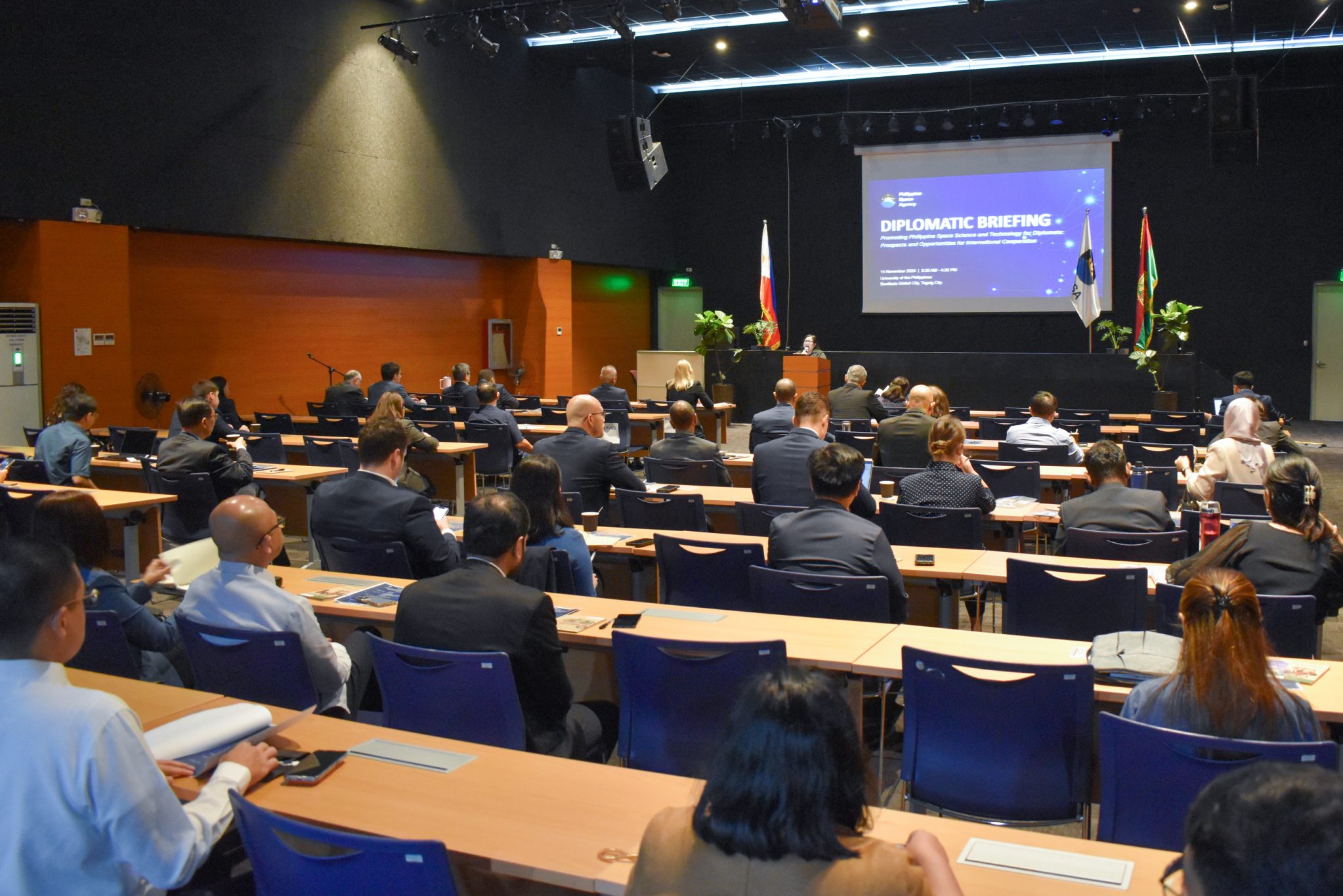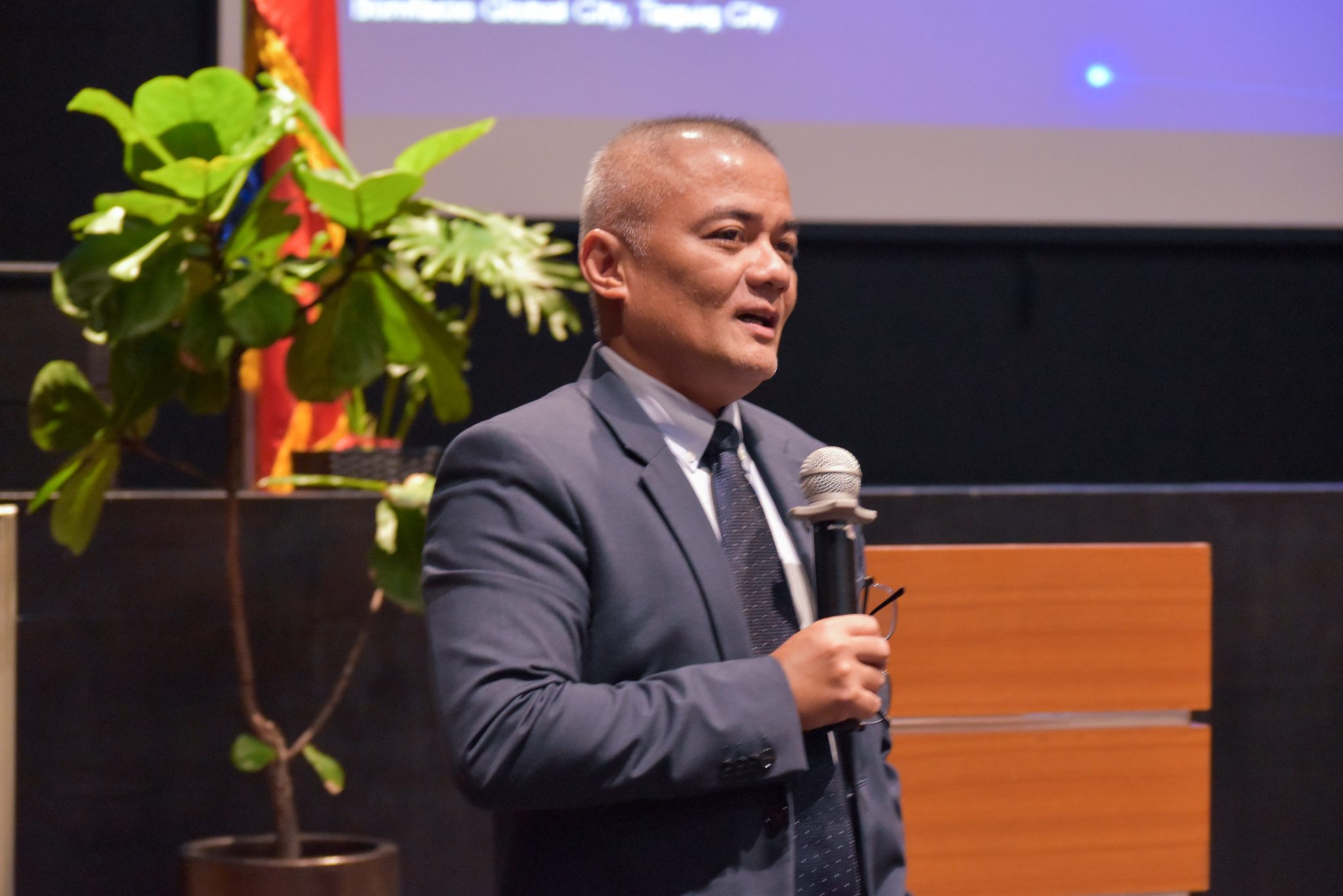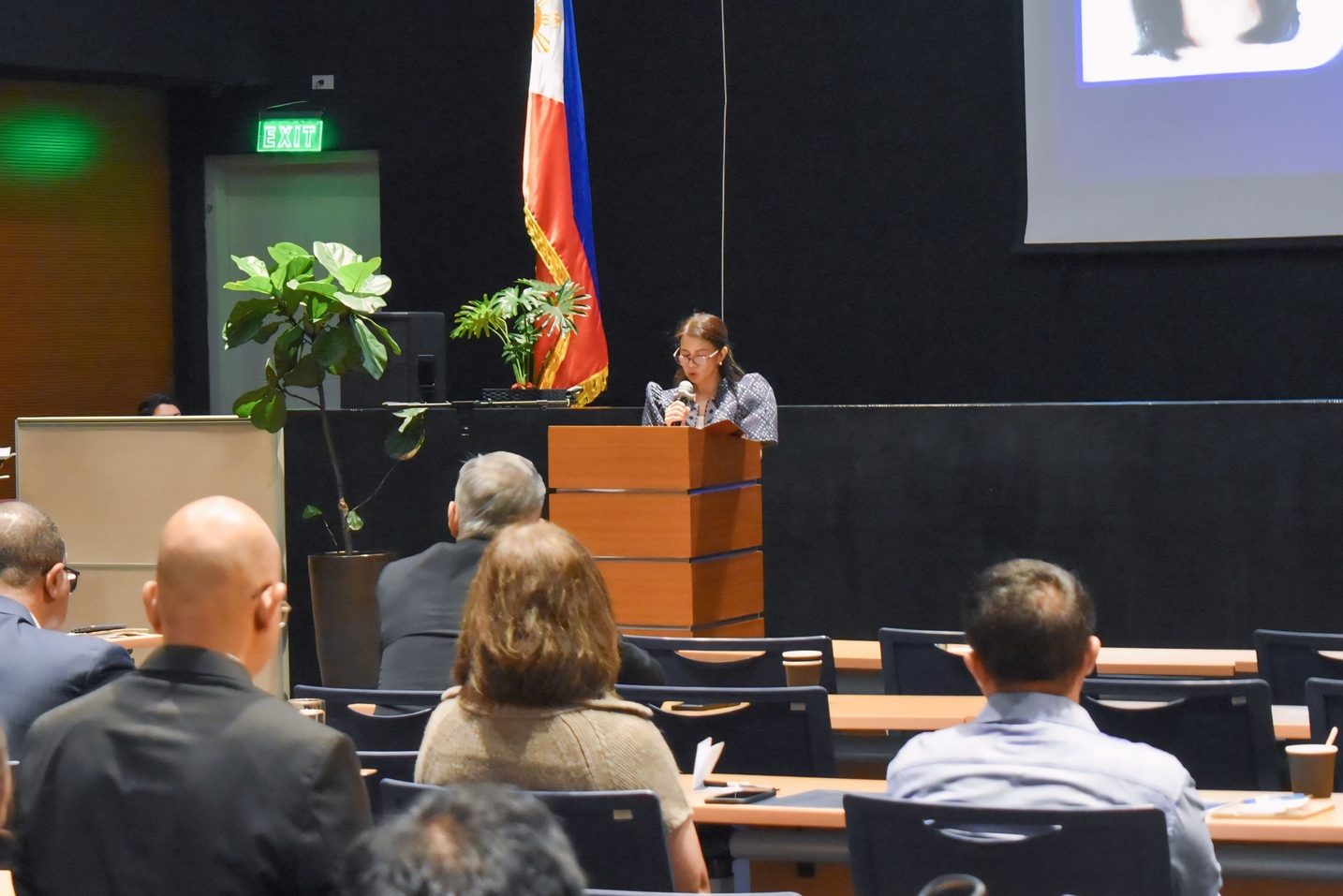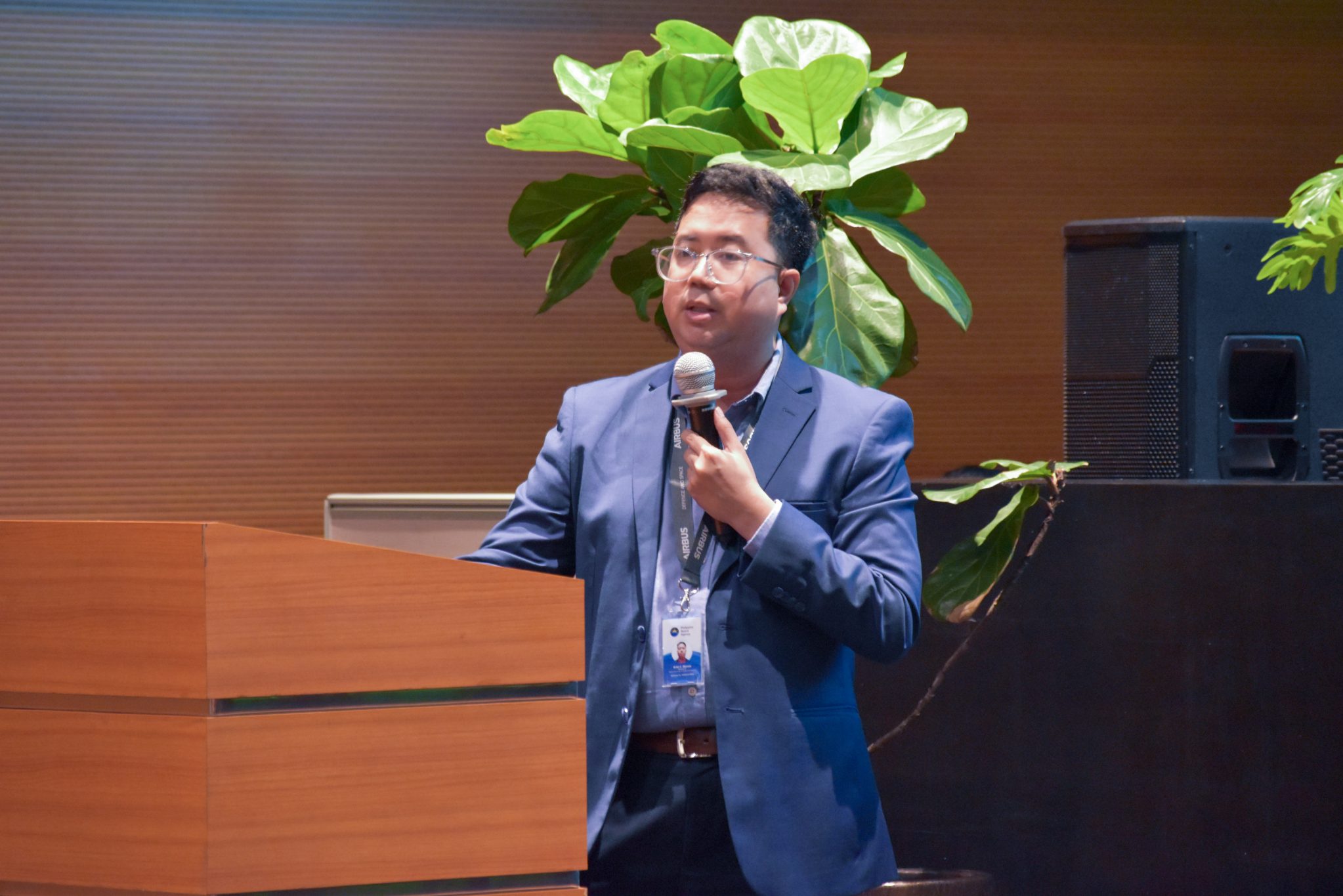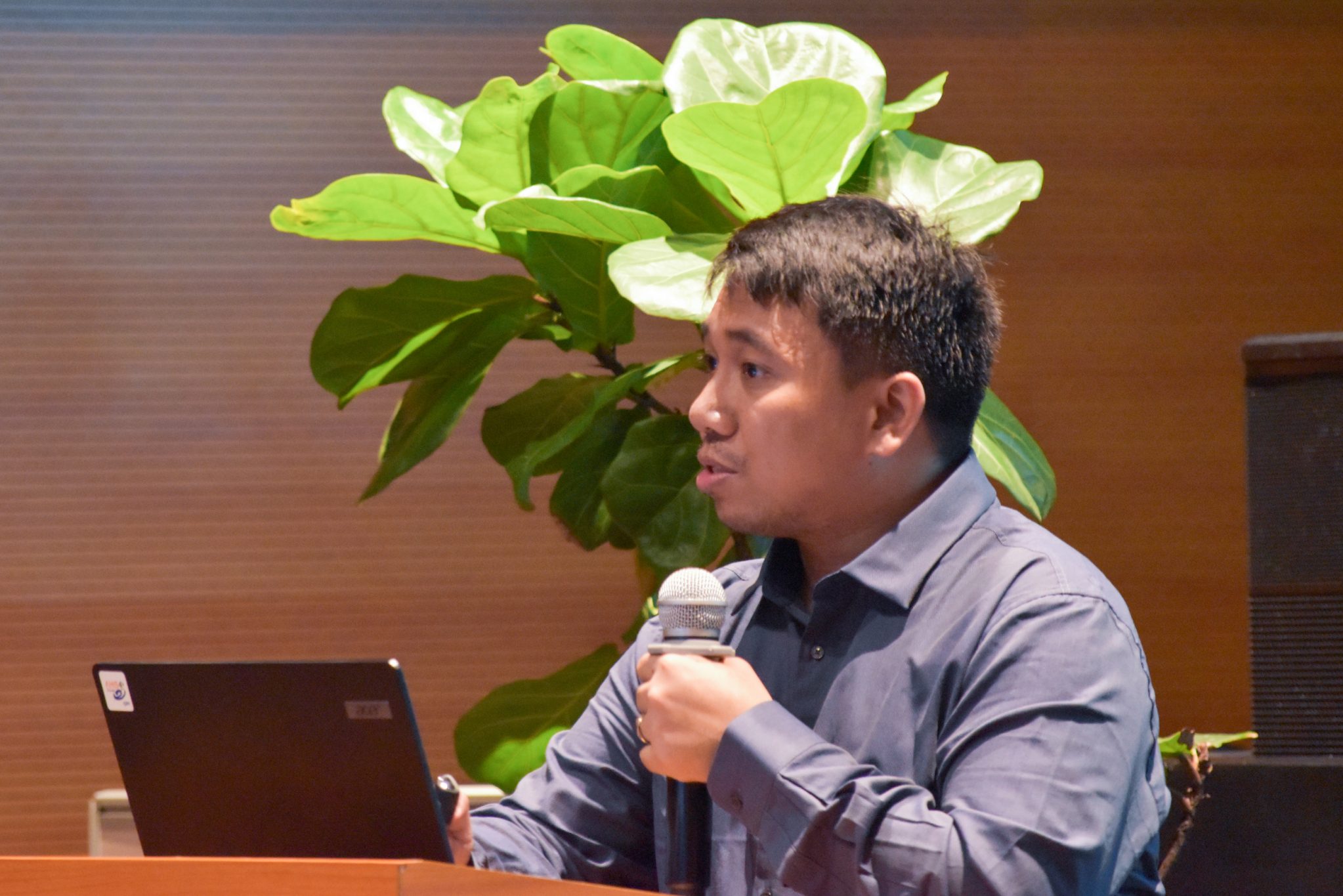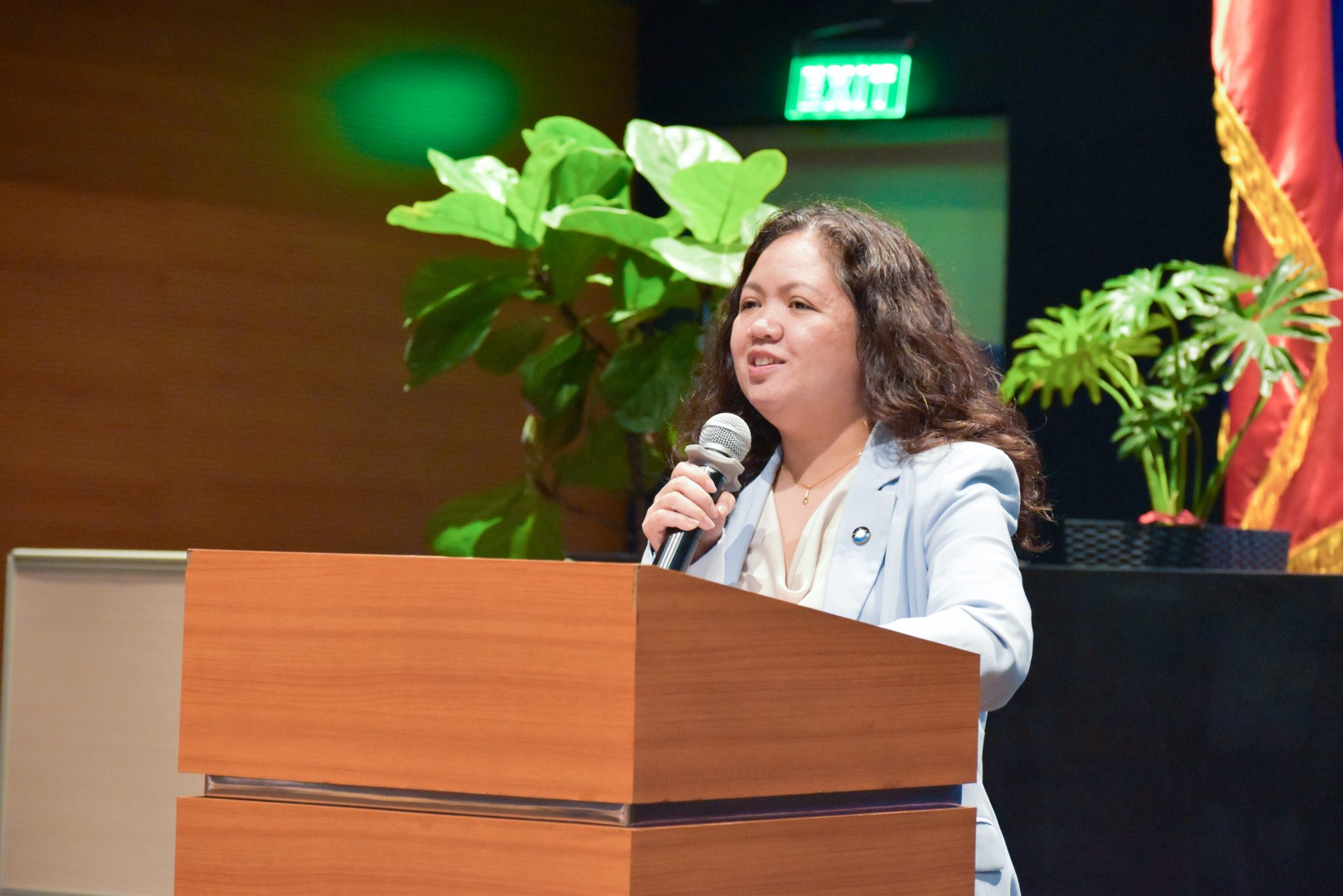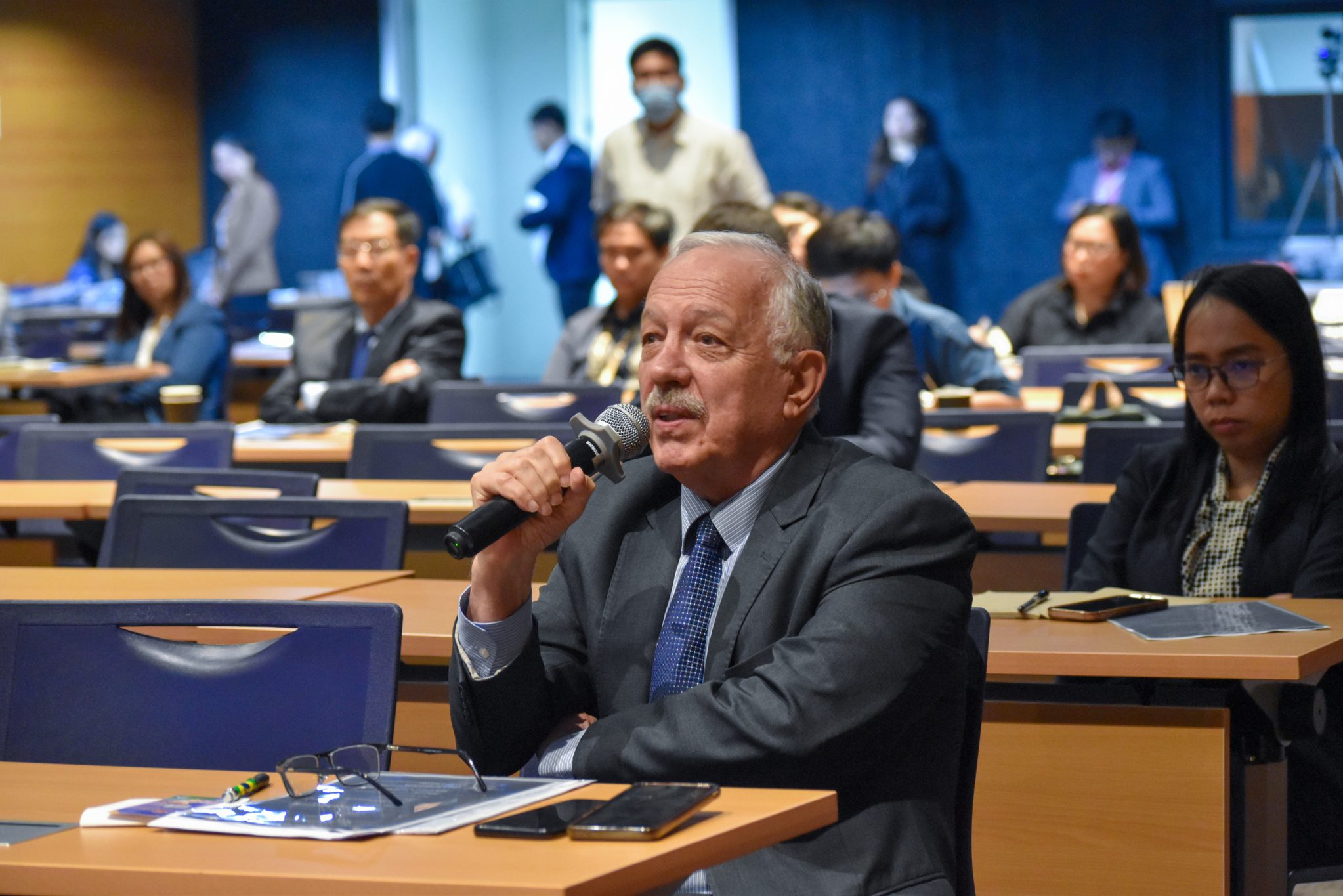The Philippine Space Agency (PhilSA) held a Space Diplomacy Briefing with members of the diplomatic community on 14 November 2024 at the University of the Philippines Bonifacio Global City (UP BGC) in Taguig City. Centered around the theme “Promoting Philippine Space Science and Application for Diplomats: Prospects and Opportunities for International Cooperation,” the briefing aimed to strengthen global partnerships in space science, technology, and applications (SSTA).
This collaborative effort between the PhilSA and the UP BGC provided an opportunity to present PhilSA’s milestones and near-term prospects in SSTA, innovation, and international cooperation with the diplomatic community. This also facilitated an exchange of perspectives and insights on space-related matters, while maximizing international collaboration through partnerships and network-building.
This also highlighted opportunities for the diplomatic community and international space agencies to work together in developing a sustainable, resilient, and impactful space ecosystem.
Atty. Noelle Riza D. Castillo, Director of the PhilSA–Space Policy and International Cooperation Bureau (SPICB), expounded on how international cooperation may be utilized for peace and economic development with the increasing relevance of space science and technology in today’s contemporary world.
“We believe the importance of utilizing international cooperation in maximizing collective and common goals for all. Through the mechanisms from space law and diplomacy, state and non-state actors can pursue a fair, transparent and open manner of navigating the benefits and advantages of outer space,” Castillo stated.
The briefing was joined by ambassadors and representatives from embassies across the ASEAN Region, Asia and the Pacific, Middle East, Europe, North America, Central and South America. Key Philippine government agencies, including the Department of Foreign Affairs (DFA), Department of Finance (DOF), Department of Science and Technology (DOST), and National Economic and Development Authority – Public Private Partnership Center (NEDA-PPP) were also present. Development partners such as the Japan International Cooperation Agency (JICA), United Nations Development Programme (UNDP), and the United States Agency for International Development (USAID) participated as well.
Atty. Darlene Marie M. Berberabe, Dean of UP College of Law, noted the need to address the increase in space activities and the evolving issues and challenges in outer space through space law and space diplomacy.
“We remain committed to helping National Government Agencies in ensuring that our current and future efforts are for the best interest of the country through conduct of legal studies and research,” Berberabe added.
The UP College of Law, through the Institute of International Legal Studies (IILS), has also provided support to PhilSA on the ratification of the Registration and liability conventions in international space law through the conduct of feasibility study.





